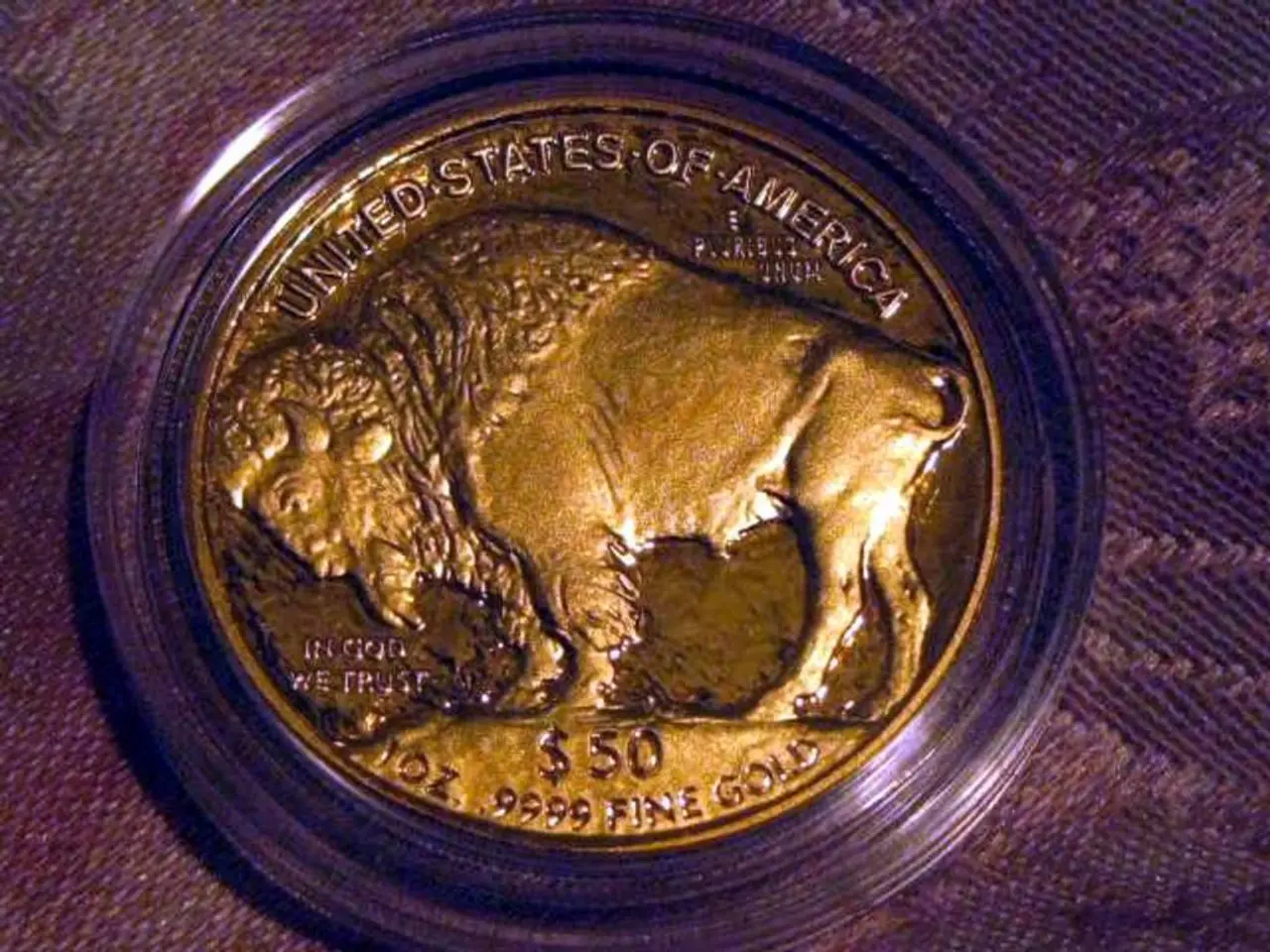Shift in global finance through de-dollarization and Bitcoin adoption
In a significant development, central banks are exploring the use of Bitcoin as an alternative reserve asset, marking a new chapter in the evolution of money. This shift isn't just about currency swaps; it's about strategy, security, and preparing for a more multipolar financial world.
The decentralized nature and fixed supply cap of Bitcoin make it an attractive option for central banks seeking to reduce their dependence on the U.S. dollar, which currently holds around 46% of global reserves. Bitcoin's resistance to inflationary pressures, similar to gold, offers a potential means for central banks to hedge against the U.S. dollar's declining dominance and inflation risks.
Institutional and governmental steps towards Bitcoin are increasing. While no central banks broadly hold Bitcoin yet, some governments and sub-sovereign entities have initiated strategic Bitcoin reserves. For instance, the U.S. established a Strategic Bitcoin Reserve in March 2025, and states like Texas, Pakistan, and Bhutan have also made moves in this direction. These moves signal growing legitimacy and interest as a long-term hedge against dollar weakness.
Policy and regulatory developments are also playing a role. Under recent U.S. policies, a Strategic Bitcoin Reserve was established using seized Bitcoin, reflecting a government-backed approach to managing Bitcoin as a strategic asset. This kind of framework could encourage institutional confidence and pave the way for central bank adoption.
However, central banks remain cautious due to Bitcoin’s price volatility, liquidity concerns, and unresolved regulatory and custody issues. These factors contribute to low current adoption but ongoing formal reviews, such as by the Czech National Bank considering allocations of up to 5% of its reserves, indicate that the conversation is evolving.
The blockchain technology associated with Bitcoin offers transparency, speed, and decentralization, which could appeal to central banks. Rising inflation, higher interest rates, growing U.S. debt, and global political tensions are factors causing countries to reconsider trusting the dollar for the long term. Instead of relying solely on the dollar, central banks are diversifying their funds across other currencies and assets to play it safer.
Gold and Bitcoin could play a significant role alongside fiat currencies in the future reserve system. The potential impact on crypto markets could be substantial if central banks allocate a portion of their reserves to digital assets. While it may take time before Bitcoin is comfortably included in global reserve portfolios, the fact that the conversation has started is significant. Bitcoin is moving beyond everyday investors and gaining attention from institutions and central banks.
Central banks around the world are moving away from the U.S. dollar, a shift now referred to as "de-dollarization." This trend, combined with the potential benefits of Bitcoin as a reserve asset, indicates a significant shift in the financial landscape. As central banks continue to explore and evaluate the use of Bitcoin, we can expect to see further developments in this area.
[1] BlackRock's insights suggest that de-dollarization is becoming a financial reality, with the world moving towards a more diversified reserve system. [2] The conversation about central banks holding Bitcoin has begun, marking a new chapter in the evolution of money. [3] Central banks are looking at other currencies and alternative assets, including gold and Bitcoin. [4] The rise in gold reserves is reflected clearly in the chart presented in the report. The chart shared in the report shows that non-dollar reserves are climbing steadily, while U.S. dollar reserves are declining. [Source: Reports by BlackRock and various central banks]
- As BlackRock's insights indicate, the trend of de-dollarization is becoming a financial reality, leading the world towards a more diversified reserve system that includes assets like gold and Bitcoin, which central banks are increasingly considering as part of their strategies.
- In light of the potential benefits of Bitcoin as a reserve asset, central banks are starting to evaluate its role, marking a significant shift in the evolution of money, where Bitcoin is moving beyond everyday investors and gaining attention from institutions as a potential long-term hedge against dollar weakness.







